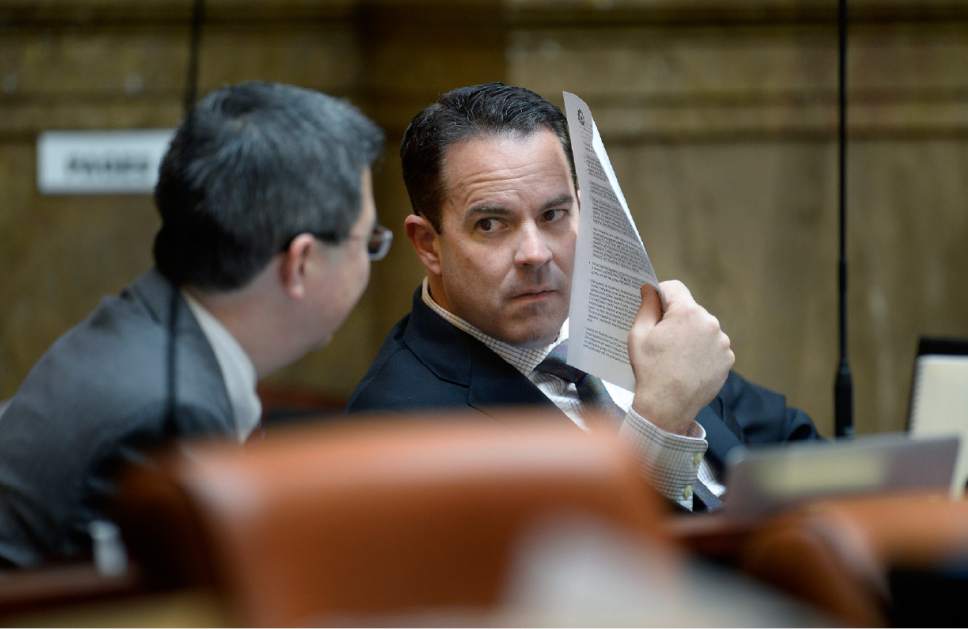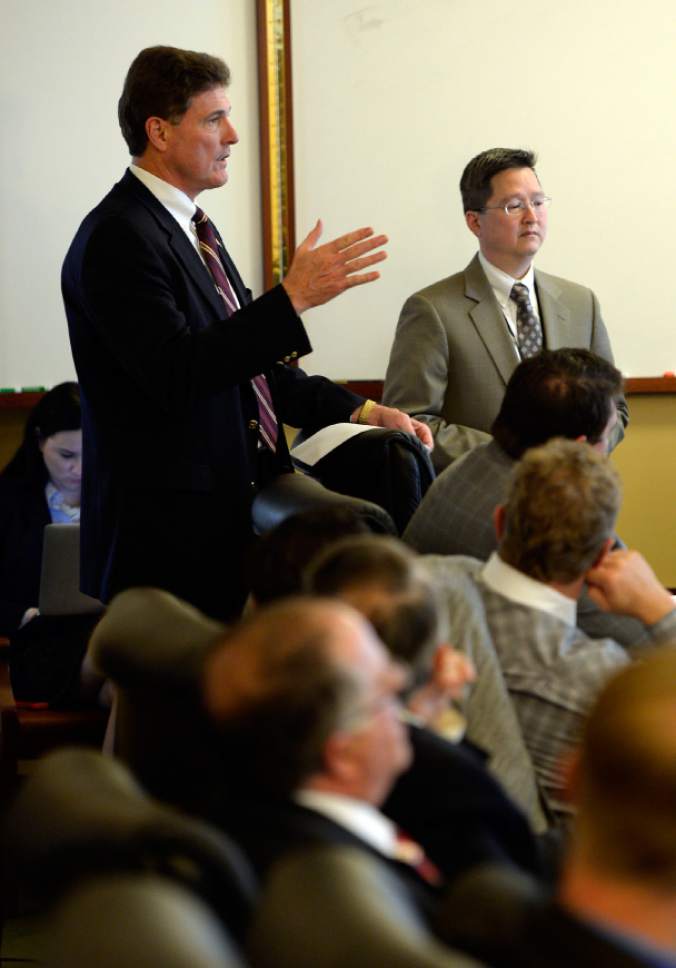This is an archived article that was published on sltrib.com in 2015, and information in the article may be outdated. It is provided only for personal research purposes and may not be reprinted.
Responding to allegations of widespread fraud and shady business practices at fly-by-night drug-treatment centers, Utah lawmakers are looking at requiring every treatment center in the state to be licensed by the Department of Human Services.
The move would give the state some measure of oversight over the business and billing practices of the centers and leverage to take action against those that may bill insurance companies exorbitant fees without providing adequate treatment.
"As someone who has worked in this field for 15 years, it was embarrassing and aggravating that somebody would have the audacity to take advantage of someone who needs help," said Brent Kelsey, assistant director of the Division of Substance Abuse and Mental Health. "We're committed to change and making sure this doesn't happen."
Last month, the Health Reform Task Force was stunned to hear stories of treatment centers that ship patients in from outside the state, headhunters who are paid kickbacks for referring patients to certain centers, and staggering expenses billed for routine drug testing, in addition to allegations of shoddy care at some treatment facilities.
A representative for one insurance company said the practices had cost his company tens of millions of dollars in Utah alone.
But because of a blind spot in state law, there was almost no oversight of the centers.
The Division of Occupational and Professional Licensing oversees clinicians at the centers and the Department of Human Services ensures the facilities are following health and safety codes. But operations at the centers went largely unchecked.
Arnold Glick, director of the fraud division at the state Insurance Department, told the committee investigators struggle to prove allegations of misconduct at the centers because they are not required to share patient information with insurance companies or the department.
Dennis Cecchini told the committee about his son, Tennyson, who died of a heroin overdose in May after the family had tried for two years to get him the help he needed, often struggling to find quality care and make sense of the insurance coverage.
"I can tell you, from trying to find a good facility, you're sometimes reduced to going on the Internet and discerning if their ads are truthful or not, and I can tell you, generally they are not," Cecchini said. "This is why licensing becomes so important. It's an issue of ensuring to some degree that a quality program is developed for our children, to help them gain these tools to fight off" addiction.
Licensing would also give the state more authority to regulate the programs and crack down on bad actors, lawmakers were told.
"I think all programs should be licensed," Kelsey said. "I think monitoring findings and disciplinary actions should be made public. I think billing practices should be audited."
Eric Schmidt, president of the Utah Association of Addiction Treatment Providers, agrees with the licensing requirement. His group helped bring to light the practices in the industry that he said are giving reputable providers a bad name.
Rep. Dean Sanpei, R-Provo, is working on a bill to impose the licensing. He said Thursday that his proposal would also ban other questionable practices, such as patient brokering, where treatment providers pay a "kickback" or a "bounty" to headhunters who sometimes approach inmates leaving jail and persuade them to sign up for drug-treatment programs.
According to the testimony last month, the treatment centers obtain insurance for the patients and bill excessive, out-of-network rates.
"There are many other states where this is illegal. In Utah, it's just a good business model," Sanpei said.
Other steps are being taken, as well. Cecchini is heading a group created by the Division of Substance Abuse and Mental Health that is putting together uniform criteria for measuring the outcomes of various treatment programs.
Schmidt said his group would help make the scoring mechanism public. Centers could not be part of the association without agreeing to be rated and those that don't meet minimum requirements would be excluded from the group.
Cecchini, who owned a major Utah architecture firm, told the committee he didn't expect to be in the position of trying to reform the treatment industry.
"Sometimes," he said, "the loss of a loved one makes you an expert very quickly."
Twitter: @RobertGehrke





